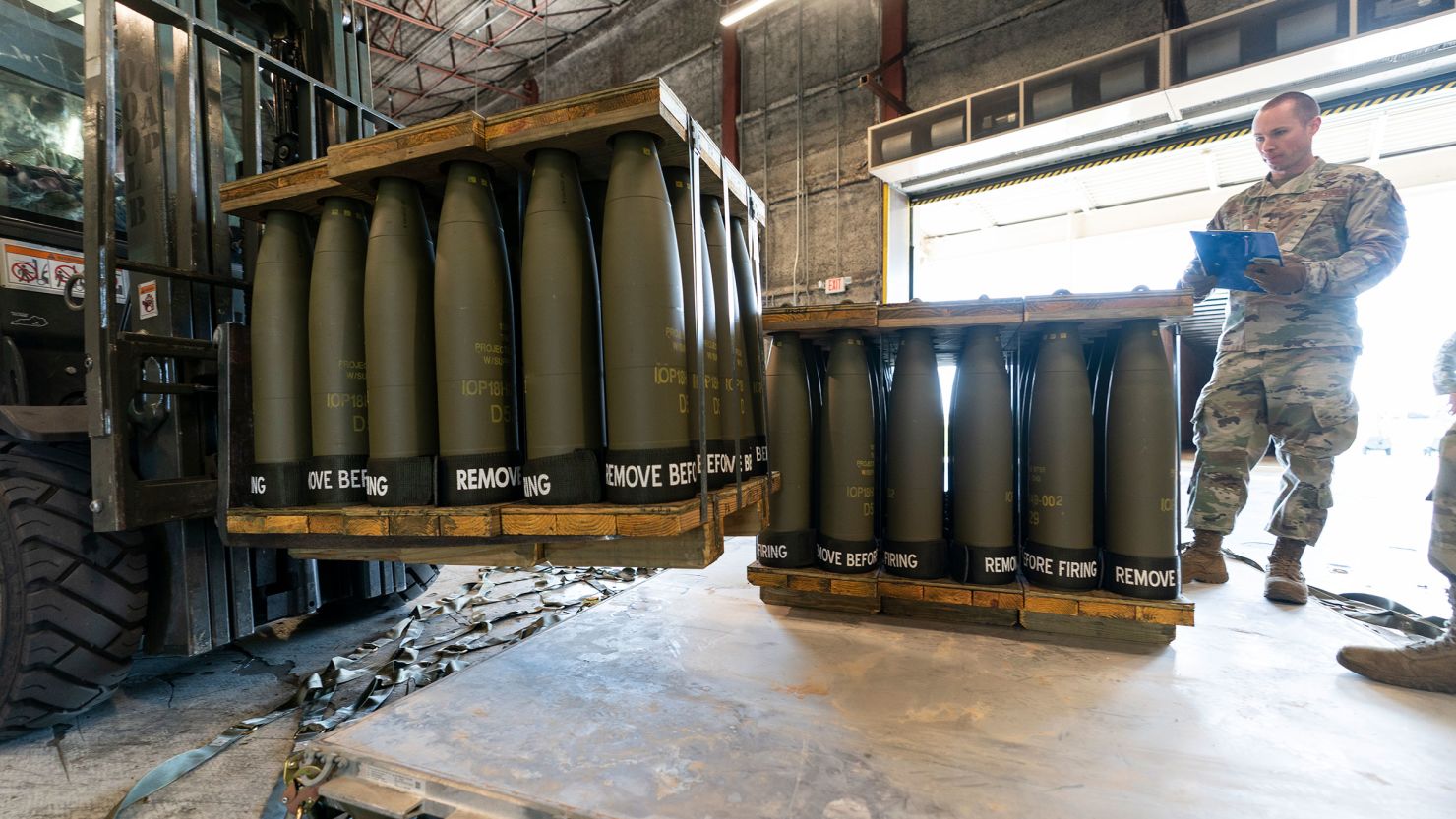Concern is growing within the Pentagon over the potential need to stretch its increasingly scarce ammunition stockpiles to support Ukraine and Israel in two separate wars, according to multiple US defense officials.
At the moment Ukraine and Israel require different weapons: Ukraine wants massive amounts of artillery ammunition while Israel has requested precision guided aerial munitions and Iron Dome interceptors.
But if Israel launches a ground incursion into Gaza, the Israeli military will create a new and entirely unexpected demand for 155mm artillery ammunition and other weapons at a time when the US and its allies and partners have been stretched thin from more than 18 months of fighting in Ukraine.
Israel has its own capable industrial base and produces many of its own advanced weapons, but a prolonged ground campaign could drain the country’s stockpiles, officials said. The Pentagon’s Joint Staff and Transportation Command have been working around the clock since Hamas launched its war on Israel last weekend to identify extra stores of munitions around the world and how to move them to Israel quickly, officials said.
On Monday, a senior defense official said the Pentagon is contacting US arms manufacturers to speed up existing Israeli orders for military equipment that may have been considered less urgent just days ago. For months, the US has been working to expand its own defense industrial base to supply Ukraine and replenish US and western stockpiles, but those efforts are still ongoing.
Defense Secretary Lloyd Austin defended the ability of the US to support both Ukraine and Israel, as the US announced another $200 million in security assistance for Kyiv, including artillery ammunition.
“We can do both and we will do both,” said Austin on Tuesday at a press conference in Brussels, when asked whether the US can support both Israel and Ukraine militarily. “We’re going to do what’s necessary to help our allies and partners, and we’re going to also do what’s necessary to make sure that we maintain the capability to protect our interests and defend our country.”
Israel front and center at Ukraine meeting
The possibility of a ground invasion and the demands it may place on the US industrial base come as Austin and the Chairman of the Joint Chiefs of Staff Gen. CQ Brown are in Belgium for a meeting of the contact group, an organization of about 50 countries, including Israel, that has come together to supply Ukraine.
The sudden ferocity of fighting in Gaza will put Israel front and center at the meeting, officials said, with one describing it as “the most important contact group we’ve ever had.”
In 2014, Prime Minister Benjamin Netanyahu urgently requested ammunition for tanks and other equipment as Israel’s last ground incursion into Gaza dragged on. The request was immediately approved by former President Barack Obama, and the equipment was pulled from US reserve stockpiles in Israel.
That stockpile is not as robust as it once was, however. The US moved hundreds of thousands of munitions out of its reserves in Israel earlier this year as the US and its allies were searching the world for ammunition to provide to Ukraine, prompting concerns among Defense Department officials and crystallizing the challenges the US faces as it grapples with two wars abroad, according to a source familiar with discussions.
Ukraine is using thousands of artillery shells as it tries to retake territory occupied by Russia – far more than Israel would use in a ground incursion into Gaza – but US and western stockpiles have been diminished by the need to supply Ukraine. Netanyahu vowed to carry out a “prolonged” campaign against Gaza, one that could put extant US stockpiles under more pressure than they already face.
Defense officials are also anxious about the dysfunction in Congress and whether lawmakers will approve additional funding for US support to Israel and Ukraine.
“One thing that is really important in terms of the munitions in particular and our ability to support both potentially the Israelis and the Ukrainians simultaneously is additional funding from Congress to be able to increase our capacity, in terms of our capacity to expand production and then to also pay for the munitions themselves,” Army Secretary Christine Wormuth told reporters on Monday.
A senior defense official said on Monday that the US is “surging support” to Israel, including air defense and munitions, and is working with the US defense industry to expedite the shipment of pending Israeli orders for military equipment.
The official said that the administration currently has the resources, authorities and funding it needs to continue its support for Israel, but said officials need Congress to ensure that additional funds will be available to respond to crises and contingencies as and when they arise.
National Security Council spokesperson John Kirby said on Wednesday that “we’re certainly running out of runway” to support both Ukraine and Israel with the current appropriations.
“The sooner that there’s a speaker of the house, obviously, the more comfortable we’ll all be in terms of being able to support Israel and Ukraine right now,” Kirby told reporters. “Because of existing appropriations and existing authorities, we’ve been okay. But that’s not going to last forever. I think in the immediate term, right now, we can continue to support – with the authorities in the appropriations we have – Israel and Ukraine. But you know, we’re certainly running out of runway.”
CNN’s Priscilla Alvarez contributed reporting.



